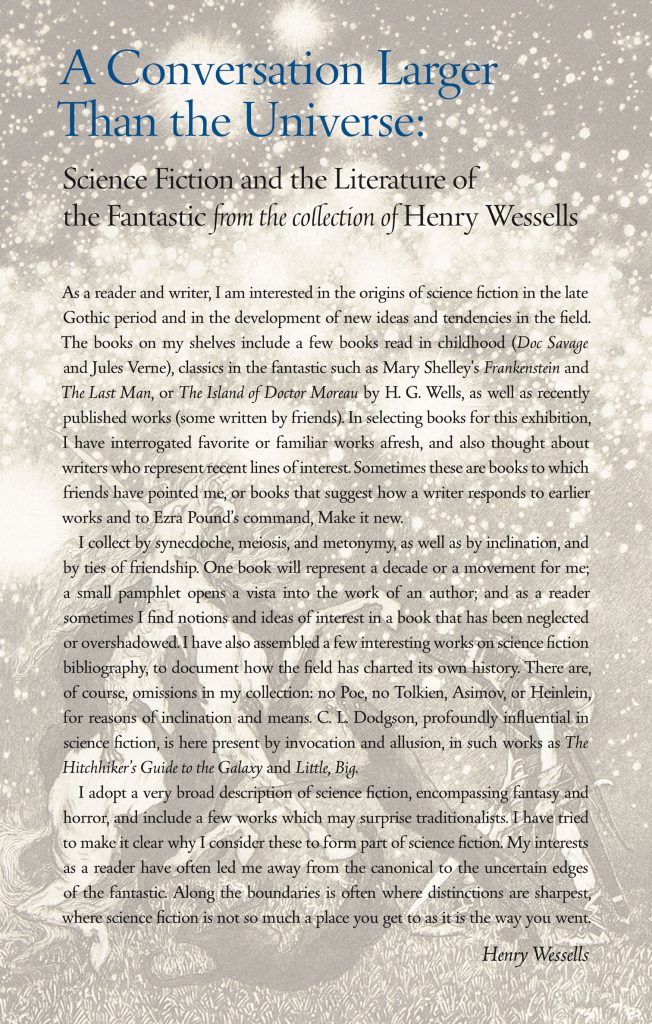A Conversation larger than the Universe
science fiction and the fantastic 1762-2017
As a reader and writer, I am interested in the origins of science fiction in the late Gothic period and in the development of new ideas and tendencies in the field. The books on my shelves include a few books read in childhood (Doc Savage and Jules Verne), classics in the fantastic such as Mary Shelley’s Frankenstein and The Last Man, or The Island of Doctor Moreau by H. G. Wells, as well as recently published works (some written by friends). In selecting books for this exhibition, I have interrogated favorite or familiar works afresh, and also thought about writers who represent recent lines of interest. Sometimes these are books to which friends have pointed me, or books that suggest how a writer is responds to earlier works and to Ezra Pound’s command, Make it new.
I collect by synecdoche, meiosis, and metonymy, as well as by inclination, and by ties of friendship. One book will represent a decade or a movement for me; a small pamphlet opens a vista into the work of an author; and as a reader sometimes I find notions and ideas of interest in a book that has been neglected or overshadowed. I have also assembled a few interesting works on science fiction bibliography, to document how the field has charted its own history. There are, of course, omissions in my collection: no Poe, no Tolkien, Asimov, or Heinlein, for reasons of inclination and means. C. L. Dodgson, profoundly influential in science fiction, is here present by invocation and allusion, in such works as The Hitchhiker’s Guide to the Galaxy and Little, Big.
I adopt a very broad description of science fiction, encompassing fantasy and horror, and include a few works which may surprise traditionalists. I have tried to make it clear why I consider these to form part of science fiction. My interests as a reader have often led me away from the canonical to the uncertain edges of the fantastic. Along the boundaries is often where distinctions are sharpest, where science fiction is not so much a place you get to as it is the way you went.
Henry Wessells
Contents
A. Collection Statement
B. Early Works 1762-1912
C. 1920s
D. 1930s
E. 1940s & 1950s
F. 1960s & 1970s
G. 1980s & 1990s
H. Now 2000-2017
I. Bibliography
J. Women Authors
K. Signed or Inscribed

